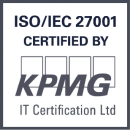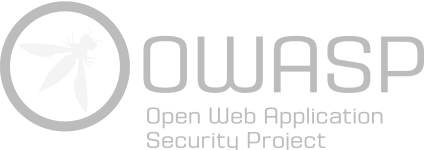Every day around €7.8 billion of illegal money flows through our global financial systems, totalling an estimated €2.9 trillion over 2023. Roughly €40 billion is stolen from innocent savers, particularly old-age pensioners. The illicit funds can also be generated through the illegal trafficking of people (€320 billion), drugs (€725 billion) and other black-market dealings. While around €410 billion is coerced directly from banks and financial services themselves, using payment, cheque or credit card fraud.
Identifying criminal activity is getting harder
As the pace of artificial intelligence and payments technology increases, so does the speed of fraud. And it’s getting more advanced all the time. Following the rapid tech surge during the pandemic, it now takes just three seconds for scammer to create a convincing deepfake voice.
In February 2024, criminals used deepfake technology to steal €23.5 million from one single corporation in Hong Kong. Alarmingly, the scammers set up a video conference call and filled it with multiple deepfake versions of senior leaders and managers to dupe the unsuspecting clerk into sending the funds. Human instincts are not sufficient to match the flood of incoming AI-generated fraud, which already increased by more than 3,000% last year.
Lithuania removes information-sharing blocks for financial institutions
For decades, institutions have already been sharing information to stop criminals in their tracks. Earlier this year, a major money laundering network was caught, thanks to rapid intelligence-sharing across Italian, Latvian and Lithuanian organisations. The findings led to 18 arrests, and €3 million has already been restored.
However, this is just a small fraction of the estimated €2 billion that was laundered through the network. There is much more that needs to be done, and the lawmakers are pushing for co-operation.
Lithuanian regulators have already started the process of making it easier for banks and fintechs to share information about suspicious financial activity. Amendments to the “Money Laundering and Terrorist Financing Prevention Law” are approved by parliament and to be enforced in August. Article 15.1 of the new rules make it clear that financial institutions “have the right to exchange information about the client”.
Banks and fintechs can share information to prevent crime
Banks and fintechs must follow strict laws about sharing data, such as personal identification data. However, if they suspect money laundering or terrorist financing, they can exchange, “information about the client and his representative, the client’s beneficiary, persons participating in the ownership and control structure of the client, which is a legal entity, and/or monetary operations or transactions”.
As explained in Article 15, paragraph 2, financial services can only exchange “necessary” information. In most cases, this will mean transaction identifiers, including times and dates. Exchanging the most information needed to catch the crime without overstepping the mark is a delicate balance. Technology can do this in a much faster and clearer way than employees.
Advancements in information sharing technology
While humans have an important role to play in identifying fraud, technology is usually better suited to take on the bulk of the heavy lifting. Working 24/7, it can continuously scan for unusual transactions, report them, and share only the legally necessary information with the correct institutions. In short, it can help banks meet their enhanced regulatory requirements and prevent money from being stolen.
Our founders have decades of experience preventing international fraud with world-leading solutions. Together, they created a tool to identify, report and share information about suspicious transactions to other financial services, following all the legal requirements to the letter. This technology, Salv Bridge is simple to install, and begin working instantly.
How technology like Salv Bridge raises the bar for compliance standards
As well as helping to restore stolen funds, Salv Bridge can also help to ensure that financial services are pulling their weight when it comes to legal requirements. It creates a collaborative environment, allowing fincrime investigators to work together and share investigation conclusions.
Financial regulators are increasingly clamping down on fintechs and banks that are not active enough in the fight against money laundering. In April the Bank of Lithuania revoked the license for one fintech “ due to significant, repeated, systematic, and prolonged violations of legal regulations, including ineffective prevention of money laundering and terrorist financing, improper management of conflicts of interest, and non-compliance with internal control procedures.”. This comes a few months after it removed the electronic money institution (EMI) licence of another fintech, also because of alleged shortcomings in its anti-money laundering and terrorist financing protocols.
Getting started with information sharing
Implementing information-sharing technology like Salv Bridge is a simple and effective way to meet regulatory requirements while helping to protect customers from crime. Salv Bridge has been successfully deployed across Estonia and Latvia for over three years and helped lots of victims to get back their money from fraudsters.
Are you on board with information sharing? Book a demo and see how Salv Bridge can help.
- Identifying criminal activity is getting harder
- Lithuania removes information-sharing blocks for financial institutions
- Banks and fintechs can share information to prevent crime
- Advancements in information sharing technology
- How technology like Salv Bridge raises the bar for compliance standards
- Getting started with information sharing




